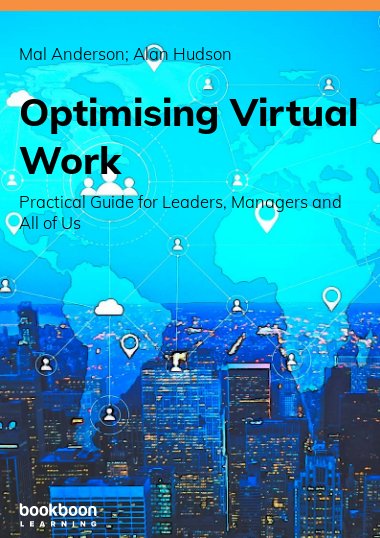Many organisations had remote work thrust upon them with the 2020 pandemic. This triggered a new working world in which the virtual working that multi-nationals had begun was morphing into the future hybrid work with office and home working blended. While productivity has generally been maintained, many people have struggled with remote working. For leaders and managers, virtual work has presented new challenges for managing teams, focusing organisations and nurturing customers. Optimising Virtual Work examines all the issues and presents recipes for optimising work in the new virtual future.
About the Authors
Malcolm Anderson, an adviser, strategist and keynote speaker on change strategy and leadership. With over thirty years of international consulting experience in organisational change, he now specialises in strategy and future-proofing, organisational transformation & performance. He mentors leaders and managers in outcome-focused thinking and architecting high performance. The results of his help are to be found in transformed organisations and engaged people, positioned to tackle the future with smart thinking, confidence and energy.
Alan Hudson is a highly experienced workplace psychologist, executive coach and training consultant. With over thirty years’ experience as an organisational psychologist and management consultant, he now operates his own private clinical practice, coaches leaders and delivers customised training in Team Optimisation, and EQ. He coaches leaders in emotional competence and its impact on management performance, stakeholder relations skills and leading teams in the evolving ‘remote’ working environment. Alan’s impact and effectiveness can be found in individuals and teams with shifted and ‘rebooted’ mindsets, better equipped to embrace their personal and professional futures with improved emotional and interpersonal competencies, renewed confidence and enthusiasm.


